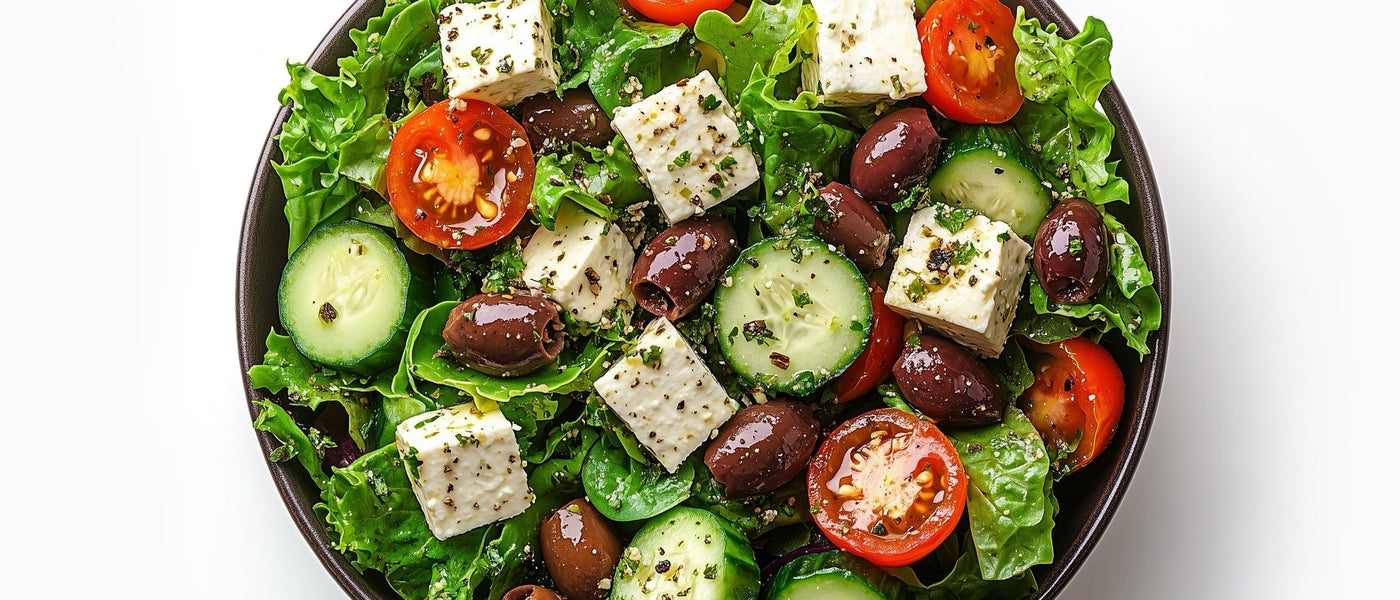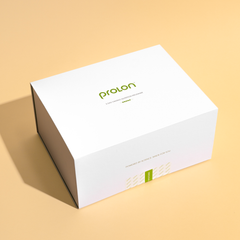
Fasting Mimicking Diet vs Vegetarian Diet: Which is More Effective for Weight Loss?
In the world of dieting, two approaches have gained significant attention for their unique benefits: the Fasting Mimicking Diet (FMD) and the Vegetarian Diet. While both diets can lead to weight loss, they differ in methodology, speed, and sustainability. FMD is a short-term dietary intervention designed to mimic the effects of fasting, while a vegetarian diet emphasizes plant-based eating for long-term health and gradual weight management. This article explores how each diet works, their advantages, and which might best support your weight loss goals.
What is the Vegetarian Diet?
The Vegetarian Diet eliminates meat, fish, and poultry, focusing instead on plant-based foods like fruits, vegetables, legumes, grains, nuts, and seeds. Some versions, such as lacto-ovo vegetarianism, include dairy and eggs. A vegetarian diet’s primary goal is to provide all necessary nutrients while avoiding meat from animals, with benefits ranging from improved cardiovascular health to reduced cancer risks. However, its versatility also extends to weight management, as plant-based foods are often low in calories and high in fiber, which can aid weight loss when structured correctly.
Vegetarian Diet for Weight Loss: How It Works
The vegetarian diet promotes weight loss primarily by emphasizing nutrient-dense, high-fiber foods, which help to manage hunger and keep calorie intake low. Fiber not only aids digestion but also slows gastric emptying, keeping you full for longer and reducing the likelihood of snacking between meals. Furthermore, fiber-rich foods help regulate blood sugar levels, preventing spikes and dips in energy that often lead to overeating.
Another component of weight loss in a vegetarian diet is the general exclusion of high-calorie, processed meats. Instead, protein sources like beans, lentils, and tofu provide essential amino acids without added fats and calories. Incorporating a variety of colorful vegetables and whole grains increases the intake of vitamins, minerals, and antioxidants, supporting overall health and enhancing the body’s ability to metabolize food effectively.
For example, a meal comprising whole grains, leafy greens, and lean plant-based protein can provide energy and satiety without excessive calories. The body benefits from the nutrients in these foods, fueling a healthier metabolism that helps sustain weight loss over time. Protein bars are a great way to consume more plant-based protein.

Challenges of Losing Weight on a Vegetarian Diet
Although the vegetarian diet has clear advantages, there are challenges to consider, especially for those aiming to lose weight. One issue is the availability of highly processed vegetarian foods, such as packaged veggie burgers or plant-based meat substitutes, which can be calorie-dense and high in unhealthy fats. Additionally, certain nutrient-rich foods like nuts, seeds, and avocados, while beneficial, are also calorie-dense and need to be consumed in moderation to avoid weight gain.
Protein intake can be another challenge, as plant-based proteins often require larger servings to achieve the same protein content found in meat. Without adequate protein, individuals may experience slower metabolism and muscle loss, both of which can hinder weight loss efforts. To overcome this, vegetarians should focus on high-protein plant foods, such as lentils, chickpeas, tofu, and tempeh, which offer essential nutrients without unnecessary calories.
What is the Fasting Mimicking Diet?
The Fasting Mimicking Diet (FMD), developed by researchers at the Longevity Institute at USC, is a short-term, low-calorie dietary program designed to mimic the effects of fasting. Lasting five days, FMD involves low-calorie meals carefully formulated to keep the body in a fasting state while still providing essential nutrients. This triggers biological processes like autophagy (cellular removal and recycling) and ketosis (fat-burning mode), without requiring a total food fast.
FMD is available in a structured program with Prolon’s 5-Day Fasting Mimicking Diet, which provides an easy-to-follow kit with the pre-packaged, plant-based meals you need for all five days. Recommended to be repeated 3-4 times a year for optimal results, the FMD supports healthy aging, fat-focused weight loss, cellular rejuvenation, and healthy metabolic markers.
How FMD Supports Fat Loss
When the body is in a low-calorie environment, it switches to ketosis, a metabolic state where fat is broken down into ketone bodies for fuel. During ketosis, the body efficiently uses fat stores, leading to weight loss. Additionally, the FMD is designed to protect muscle mass, which tends to be lost with many traditional diets. Unlike traditional fasting, which can be challenging due to complete abstention from food, FMD allows for some nutrient intake, helping to alleviate hunger and sustain energy levels. This makes it easier to maintain over the short five-day period while still reaping the benefits of fasting.
Comparing FMD and Vegetarian Diet for Weight Loss
Both diets support weight loss but differ in their pace and long-term application. The FMD is a short-term approach which supports fat-focused weight loss, while the vegetarian diet offers a more gradual, sustainable pathway.
Speed of Results: FMD vs Vegetarian Diet
The FMD provides quicker results due to its short-term calorie restriction and fasting-induced fat loss over a five-day cycle. By drastically reducing caloric intake, the FMD pushes the body into fat-burning mode, which helps achieve visible weight loss in a short period. This makes it ideal for individuals seeking rapid results, especially for specific events or health needs. On the other hand, the vegetarian diet fosters slower, more sustainable weight loss. It emphasizes fiber-rich, low-calorie foods that, when balanced with protein and healthy fats, supports gradual weight reduction. This slower pace can be beneficial for those who prefer a more adaptable diet that can become part of their lifestyle.

Long-Term Weight Maintenance
A well-balanced vegetarian diet provides flexibility, variety, and nutrient density that can be followed indefinitely. By focusing on high-fiber, nutrient-rich foods and avoiding processed vegetarian options, individuals can maintain a healthy weight over time.
The Fasting Mimicking Diet (FMD) has shown to sustain weight loss upon resuming a normal diet after the five days, and when repeated every few months, may support long-term weight management. It can be a valuable tool for periodic resets, complementing other diets, including vegetarianism.
Benefits of FMD and Vegetarian Diet for Your Weight Loss Journey
Each diet offers unique advantages, making them suitable for different stages of a weight loss journey or individual preferences.
Why FMD Might Be More Effective for Fast Fat Loss
The FMD’s structured, short-term approach triggers a fasting state, supporting fat-focused weight loss. Studies on FMD have also shown its efficacy in supporting healthy metabolic markers like insulin sensitivity. For those needing a quick but effective way to lose weight, the FMD may provide a reliable solution.

Why Vegetarian Diet May Be Ideal for Slow, Steady Weight Loss
For individuals who prefer a more gradual, consistent approach, the vegetarian diet offers a foundation for slow and steady weight loss. It’s inherently high in fiber, which aids digestion and prolongs satiety, helping to manage calorie intake. Additionally, by focusing on whole foods, the vegetarian diet supports a range of health benefits, from better blood sugar control to reduced cardiovascular risks, making it ideal for sustained, long-term weight loss.
Which Diet Fits Your Weight Loss Goals?
Choosing between the FMD and the vegetarian diet ultimately depends on your weight loss goals. If you’re looking for rapid fat loss and can commit to a short, restrictive diet periodically, the FMD may be the most effective choice. Alternatively, if you prefer a slower, steady approach that integrates easily into daily life, the vegetarian diet provides a sustainable path toward weight management.
Why Prolon’s 5-Day Fasting Mimicking Diet May Be the Ideal Solution for Faster Fat Loss

For those interested in the benefits of fasting without the challenges of complete food abstention, Prolon’s 5-Day Fasting Mimicking Diet offers a convenient, scientifically-backed solution. Designed by longevity scientists at the Longevity Institute at USC, Prolon’s FMD provides pre-packaged meals that support the body through the five-day fasting period, making it easy to follow.
- Scientifically Proven to Reduce Fat: Prolon’s FMD has been rigorously studied and shown to target fat loss by inducing ketosis and supporting cellular repair. This scientific backing makes Prolon’s FMD a trustworthy choice for those seeking an efficient, evidence-based approach. Learn more about Prolon’s 5-Day FMD.
- Convenient and Easy to Follow: Unlike traditional fasting methods, Prolon’s FMD includes pre-packaged meals that ensure essential nutrients are consumed, minimizing many of the risks and challenges associated with traditional water-only fasts. This structured approach is ideal for those who want the benefits of fasting in an accessible, manageable format. Explore Prolon’s 5-Day FMD.
Conclusion: Achieving Weight Loss with the Right Diet
Whether you choose the quicker results of FMD or the longer-term path of the Vegetarian Diet, both can be effective for weight loss. They also work as complements to each other; consider following a Vegetarian Diet daily and incorporating the FMD a few times a year.
If you’re looking to kickstart your fat-targeted weight loss in a structured, scientifically backed way, Prolon’s 5-Day Fasting Mimicking Diet is an ideal option.
Sources: Fasting Mimicking Diet (FMD) Overview: Prolon’s Official FMD Program Research on FMD by Dr. Valter Longo: https://gero.usc.edu/2024/02/20/fasting-mimicking-diet-biological-age/ https://gero.usc.edu/2019/04/18/eat-less-live-longer-the-science-of-fasting-and-longevity/ Benefits of a Vegetarian Diet: Harvard Health on Vegetarian Diet Benefits American Heart Association on Plant-Based Diets https://gero.usc.edu/2024/02/20/fasting-mimicking-diet-biological-age/












